Edinburgh Fringe hit with spate of ‘exploitative’ job adverts ahead of festival
Exclusive: Interns are offered as little as a £200 ‘token payment’ in exchange for working the entire month
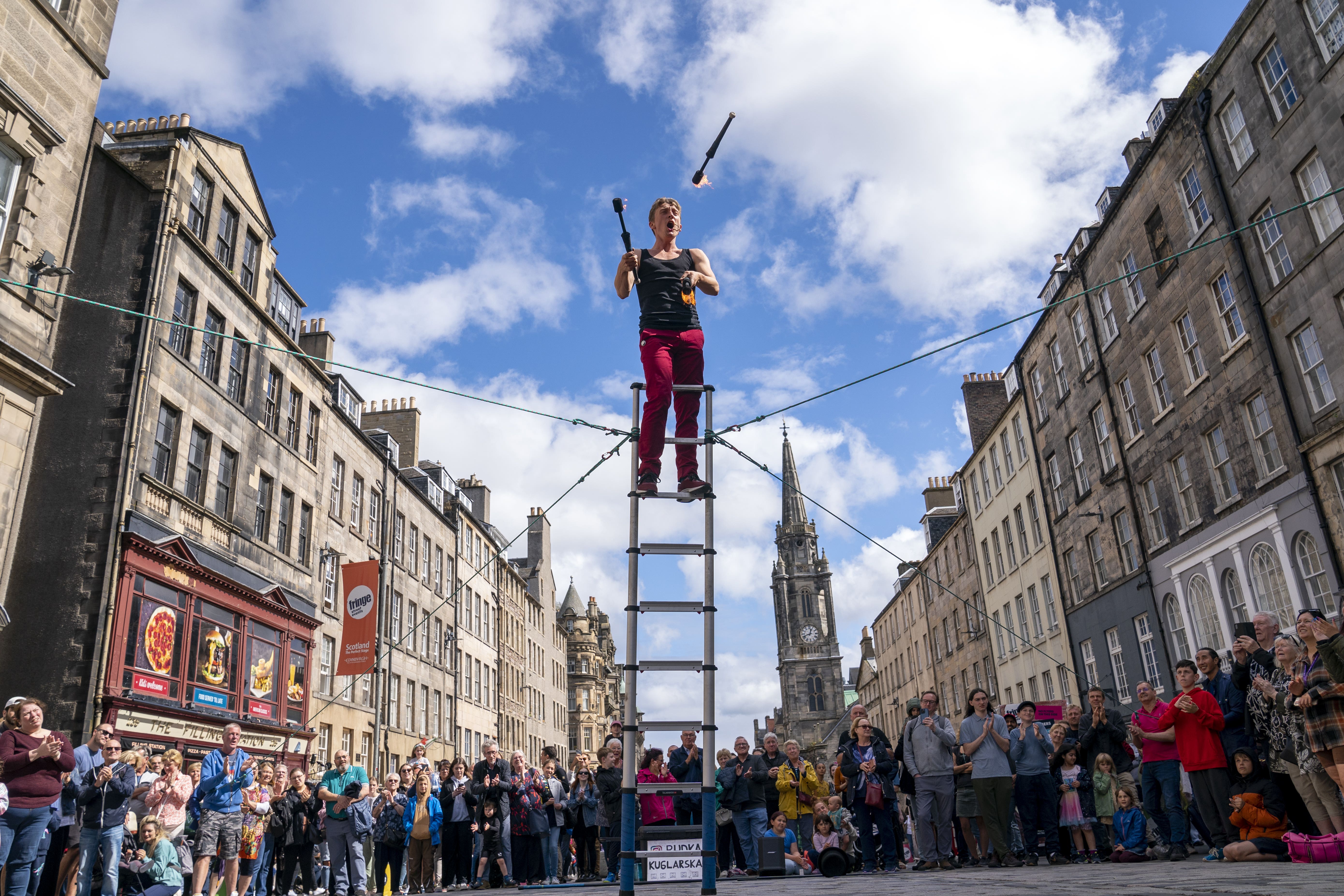
Job adverts offering young creatives the chance to work during the entire Edinburgh Fringe Festival for the equivalent of £1.25 an hour have been branded “exploitative”.
An investigation by The Independent has found job adverts from an entertainment website and a PR firm attempting to hire reviewers and interns for as much as 10-hour days, seven days a week, for as little as £200 for the month.
One of the ads, which is offered by the London-based company Impressive PR, offers a “token payment” of between £200 and £250 in exchange for PR interns working “long hours including evenings and weekends” – and expects the successful candidates to provide their own accommodation and laptop.
While Impressive PR does pay for the interns’ phone bills and travel expenses within Edinburgh, they stress that successful candidates must be “exceptional” and willing to complete a range of duties including “general admin and anything else that’s required” for their top “award-winning” talent.
Another advert, which is from a “confidential” employer, seeks a “brilliant” writer with a range of interests for “the whole run” who is also prepared to provide their own accommodation and work a “10-hour shift” “seven days a week at the Fringe”.
As reported by the Fringe Festival, anyone looking to spend the month in the city can expect to pay £2,000 to £3,000 on accommodation alone.
In the case of the intern reviewers, they are expected to have 24/7 availability for 10-hour shifts offered by the website Entertainment Now.
Under current UK guidance, interns in the UK are entitled to the minimum wage, which is a minimum of £6.40 an hour for a 16-year-old – rising to £11.44 for over 21s.
While unpaid internships exist, interns are entitled to the minimum wage if they are expected to turn up to work at given times, even if they have no contract, which appears to be the case in both these roles.
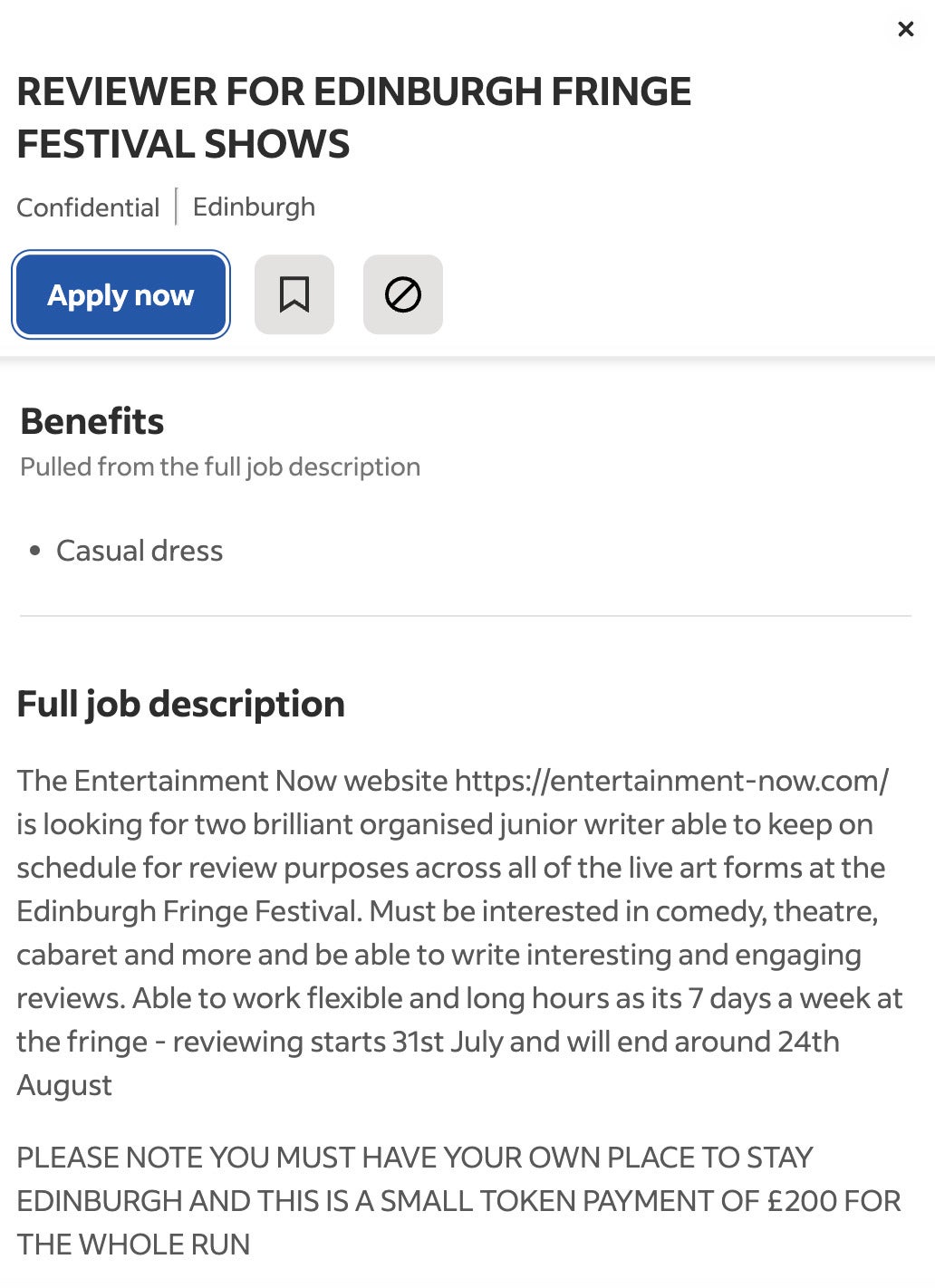
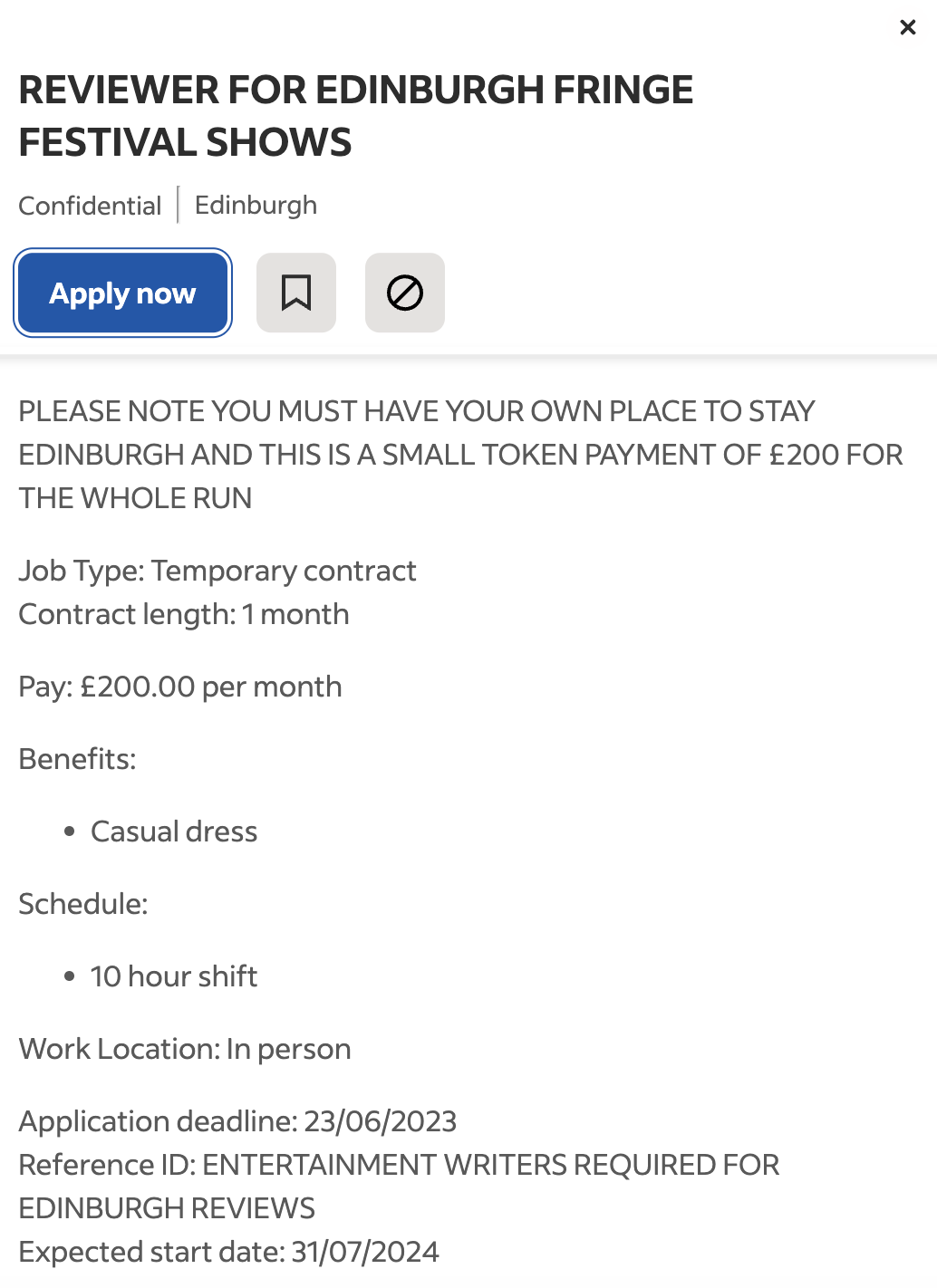
Further investigation reveals that these are simply two examples of a problem rife at the festival, with multiple sources confirming to The Independent that they have been paid less than the minimum wage to flyer for shows – and in some cases, do so for well-known comedians.
The problem is often perpetuated online, with many jobs advertised on seemingly unregulated Facebook groups or by word of mouth.
A Scottish singer, who asked to remain anonymous, told The Independent that they earned less than the minimum wage after one sold-out performance at the Fringe.
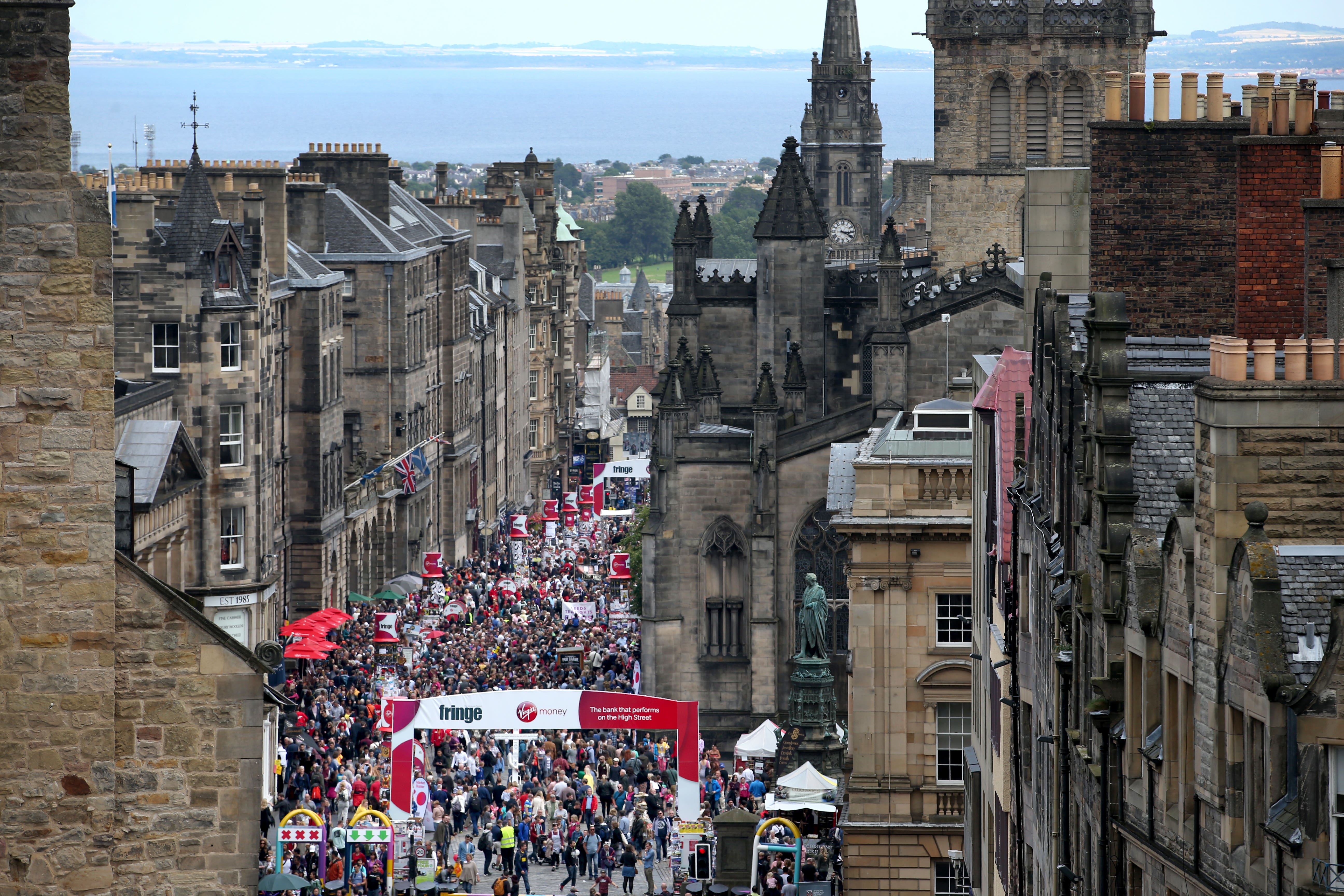
“For ONE show (1.5 hours of venue hire), it costs £200 management fee to the venue, and also £96 to register with the fringe,” they explained.
“£296 plus travel and accommodation in Edinburgh. If I did it solo, I could keep the proceeds. If I used my session musicians, I’d pay them at least £150 each.
“So let’s say the cost for me to do a band show ONE day was £300 for session musicians, £296 for management and fringe registration, £50 for petrol and zero for hotel because I’d drive to Edinburgh.
“To get posters printed and flyers would be like £50-60. That’s like £650 off the bat.
“The capacity of the room is only 80. So even though I sold out at £10 per ticket for 80 people, deduct the costs and I was left with less than £10.”
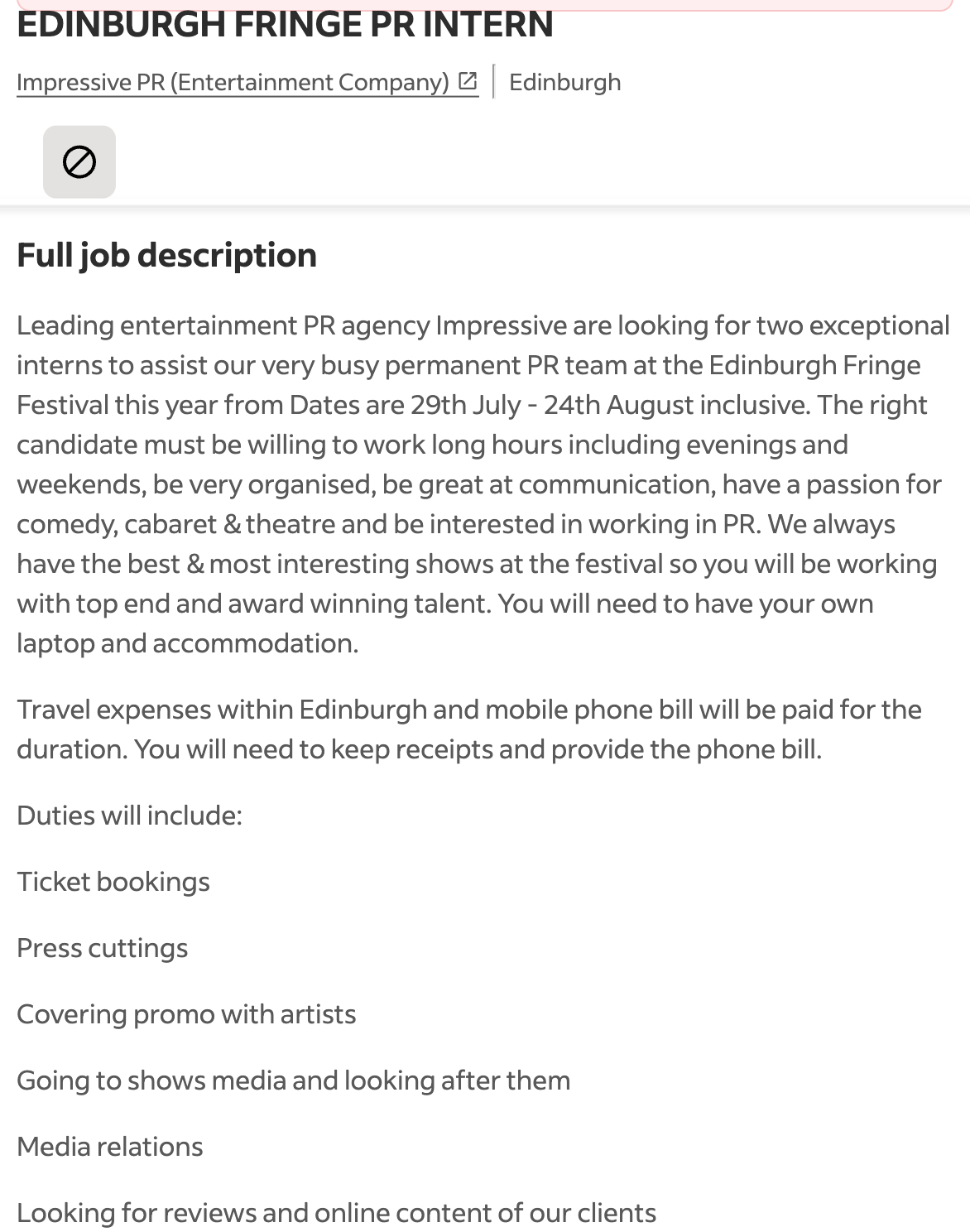
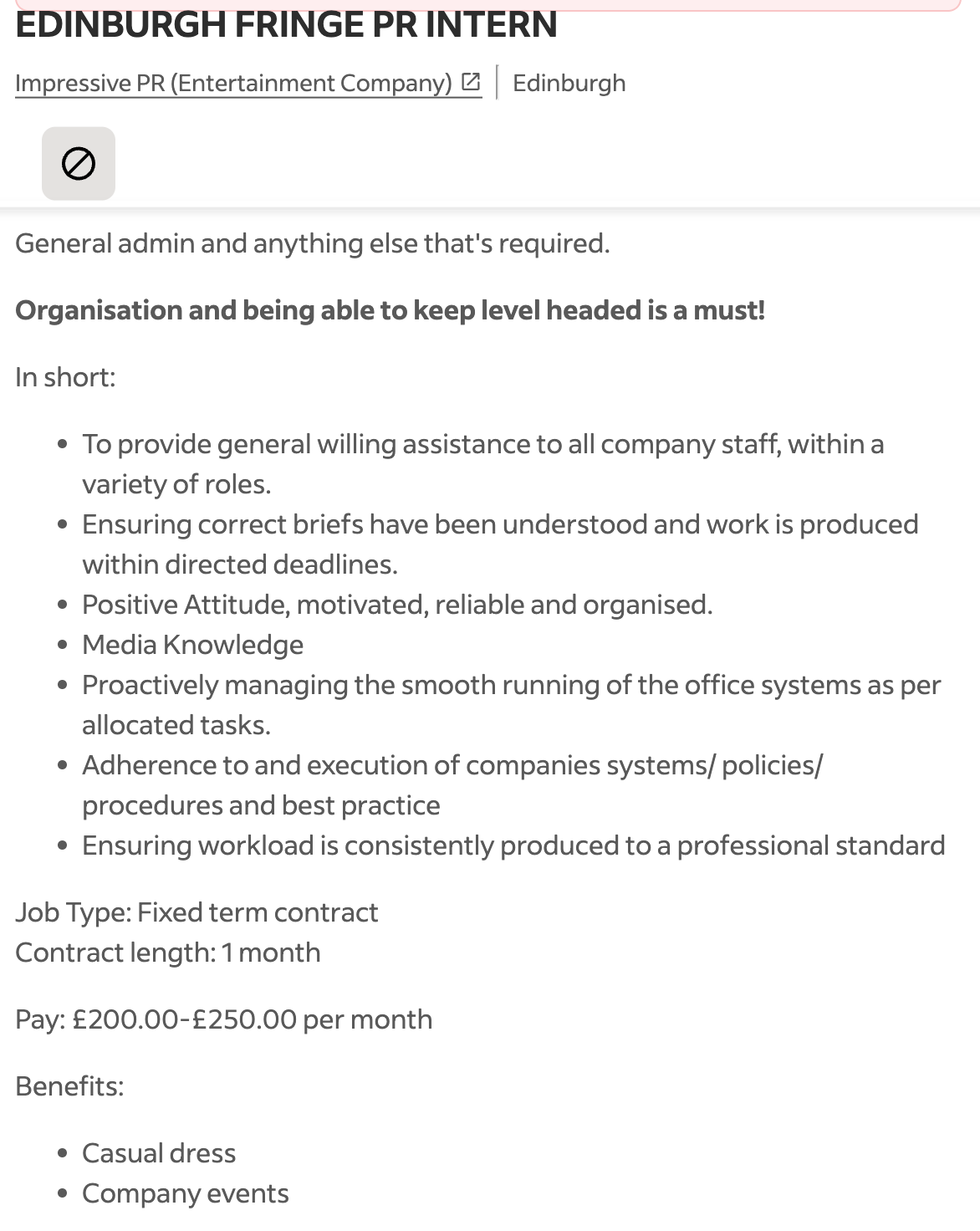
The job ad for intern reviewers was met with outrage after it was posted to Twitter/X.
“This isn’t acceptable,” one Twitter user wrote. “Expecting Fringe reviewers to be fully flexible for ten hours a day, seven days a week and getting a £200 flat rate for a month at the fringe is just exploitative.”
Reacting to the post, another X user wrote: “That’s actually insane.”
The original poster then acknowledged that while the job might appeal to aspiring writers if it had flexibility, the demands placed upon them are too high in light of the lack of compensation.
“I could see the appeal if you got free tickets to pick and choose around your own schedule what you reviewed,” they wrote, “but this is taking the biscuit.”

While there are huge issues with exploitation at the festival, C Venues, who are a separate firm and unrelated to the adverts highlighted, told The Independent that not all positions that fail to pay the minimum wage are exploitative.
Countering the lack of support provided by the aforementioned internships, which are particularly inaccessible to those from working class backgrounds, the company defended the use of unpaid volunteer roles at the Fringe.
C Venues, which offers unpaid volunteer positions as opposed to internships, explained that, for some, their roles offer a chance to “develop skills” and make participation in the Fringe “accessible and inclusive for all”.
Their organisation, however, does provide volunteers with reasonable expenses, accommodation, food and, in some cases, transport. As the positions are voluntary, the hours worked are entirely optional, in line with current UK law, they said.
A spokesperson for the company told The Independent that their volunteer programme works to “support companies and artists facing barriers to participation in the arts.”
It does so by providing “opportunities for people with an interest in the arts to receive training and experience in theatre and event skills, make friends, meet professional contacts, and experience a wide range of artistic work”.
Unlike the so-called “exploitative” internships, volunteers at C Venues “are free to choose whether to volunteer or not, when to volunteer, and how long to volunteer for”.

An Edinburgh Festival Fringe Society spokesperson told The Independent: “The Fringe collectively employs over 3,000 people, and the Fringe Society works with agencies such as BECTU, Volunteer Edinburgh and Equity, to ensure best practice for workers and volunteers is being promoted across the Fringe.
“In 2022 we launched six new development goals, with Fair Work a key strand that contained clear objectives and targets. Every year we undertake a workers and volunteers survey to understand workers’ experience.
“Fair Pay is, for the UK, a wider arts sector issue, and we are regularly advocating to ensure working or volunteering at the Fringe is rewarding for all.”
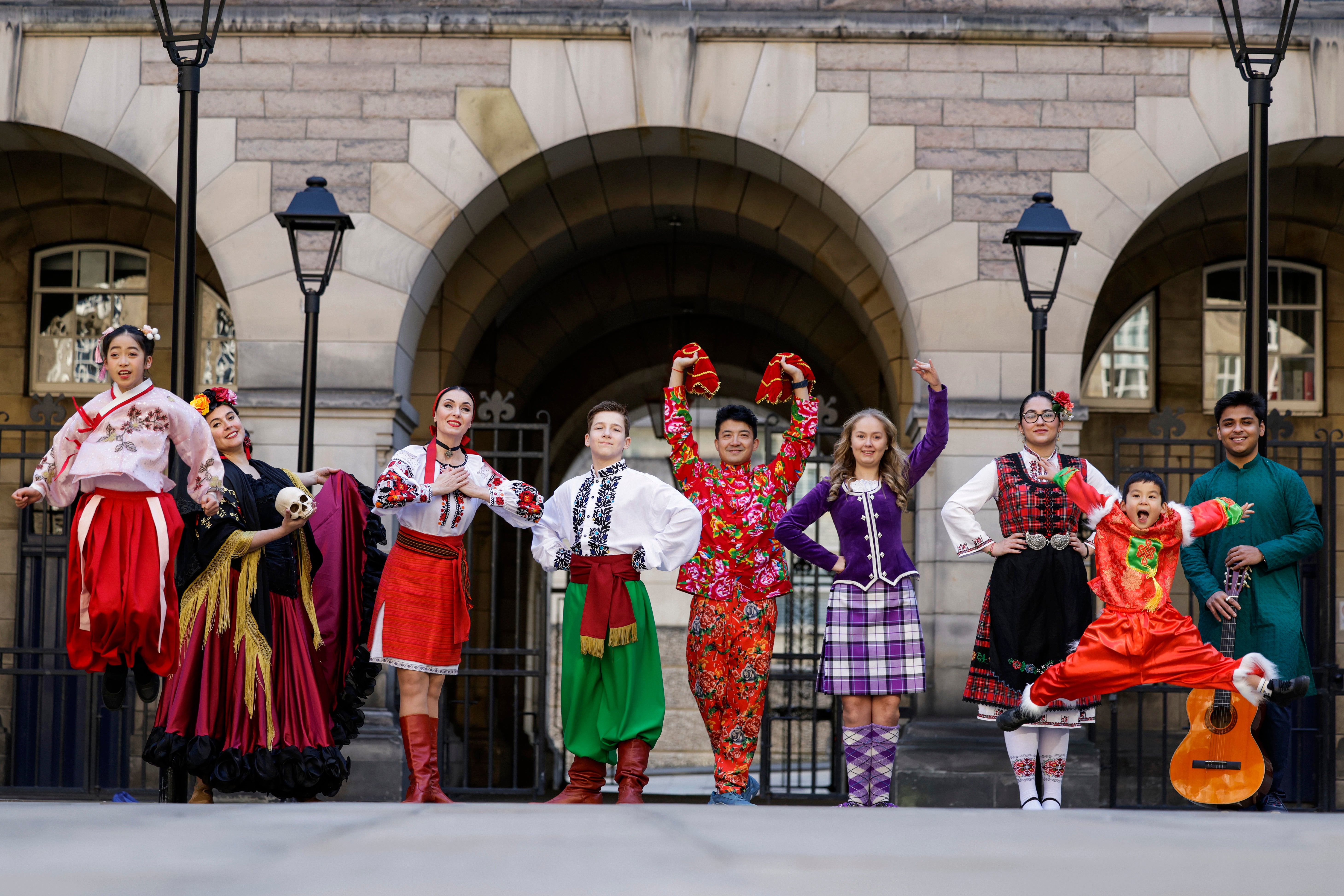
The Scots Language Centre told The Independent that “any arts festival which relies upon workers who are not receiving at least the living wage is exclusionary”.
The charity, which provides support to all creators working in the marginalised language of Scots, said such practices “contribute to the marginalisation of minority languages and those of us who speak them”.
“This is particularly relevant to the Scots speakers of Edinburgh who would be delighted for the opportunity to work in their own international festival.”
The Independent has reached out to Entertainment Now and Impressive PR for comment.
Subscribe to Independent Premium to bookmark this article
Want to bookmark your favourite articles and stories to read or reference later? Start your Independent Premium subscription today.

Join our commenting forum
Join thought-provoking conversations, follow other Independent readers and see their replies
Comments